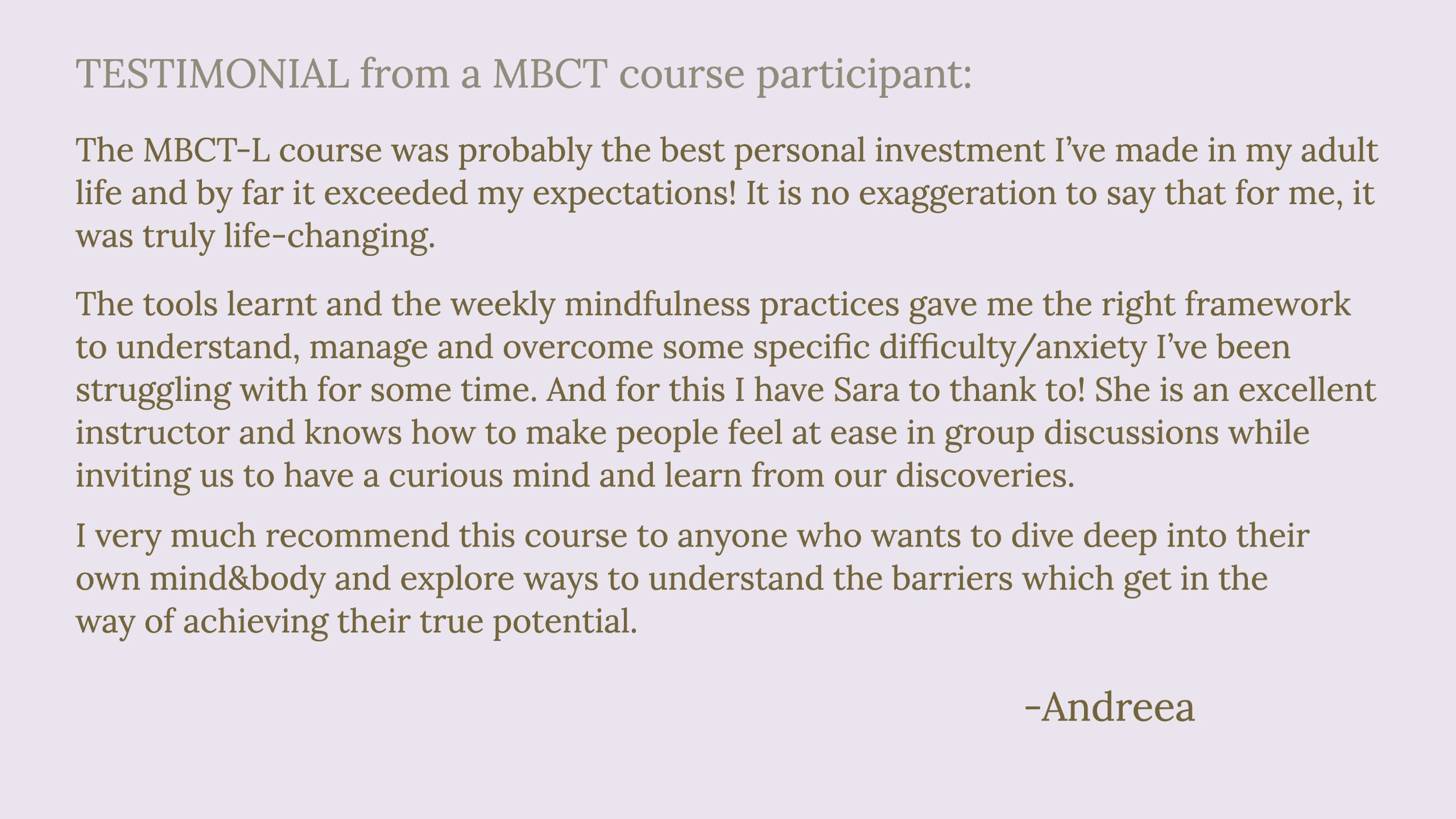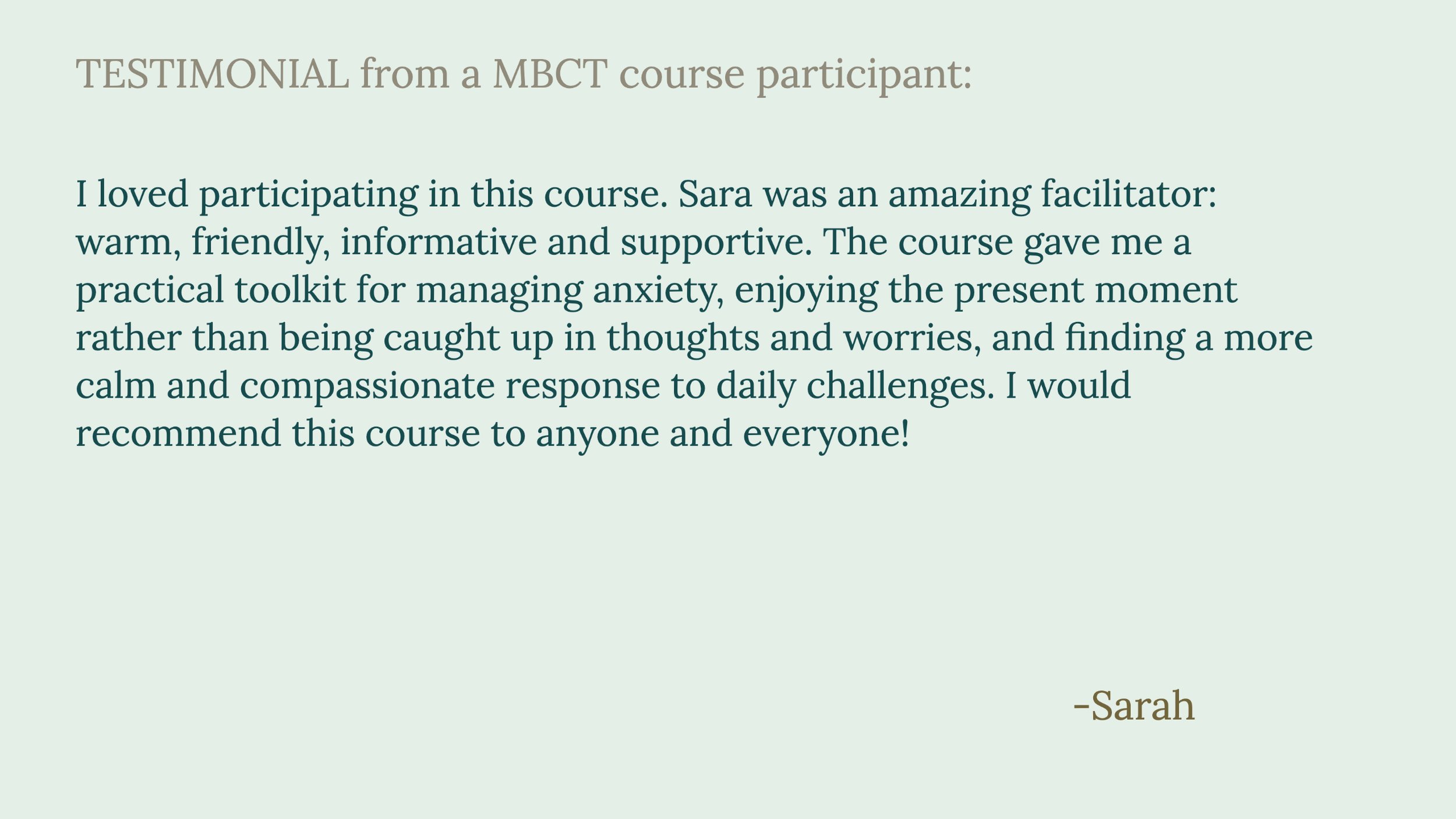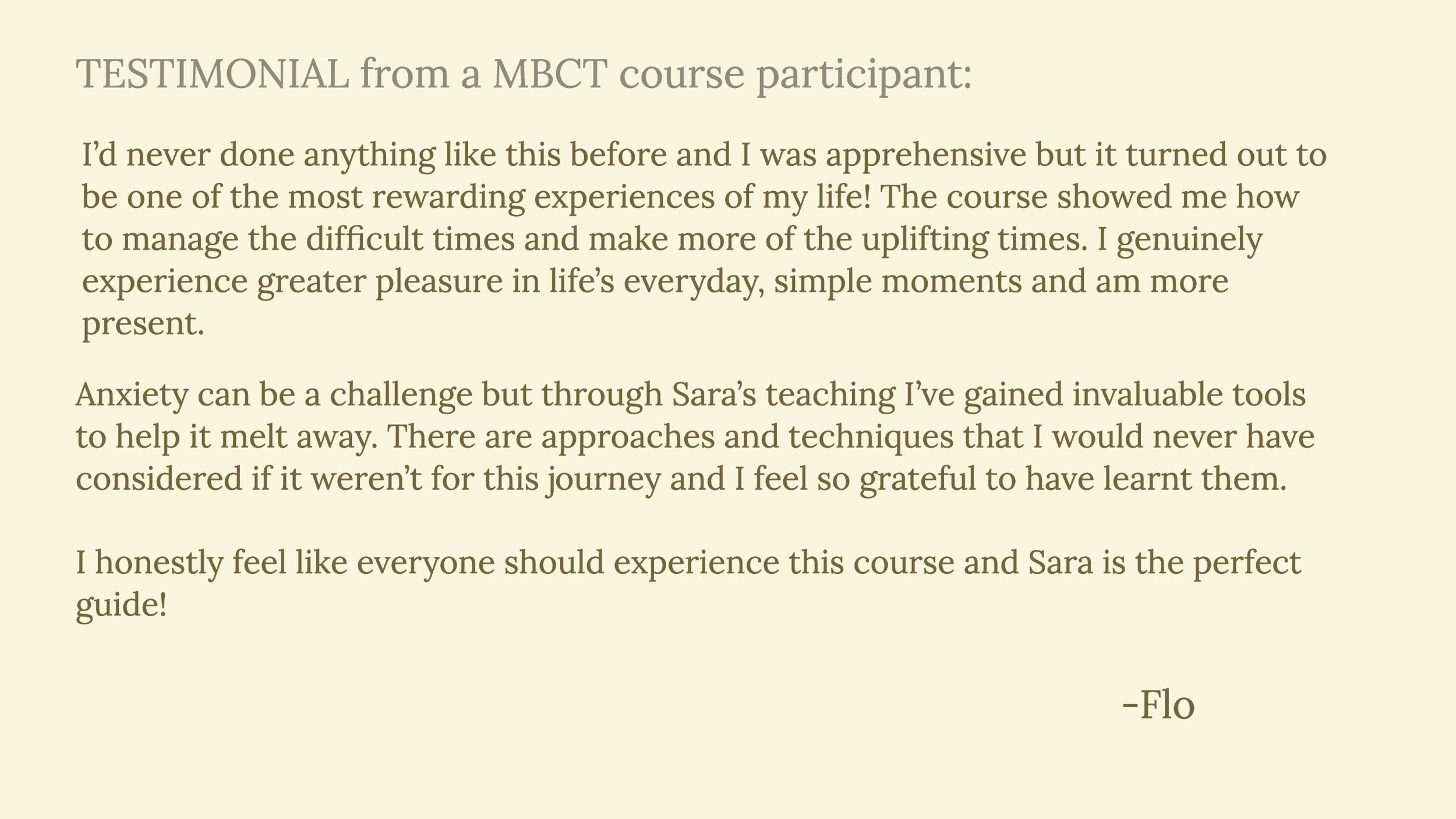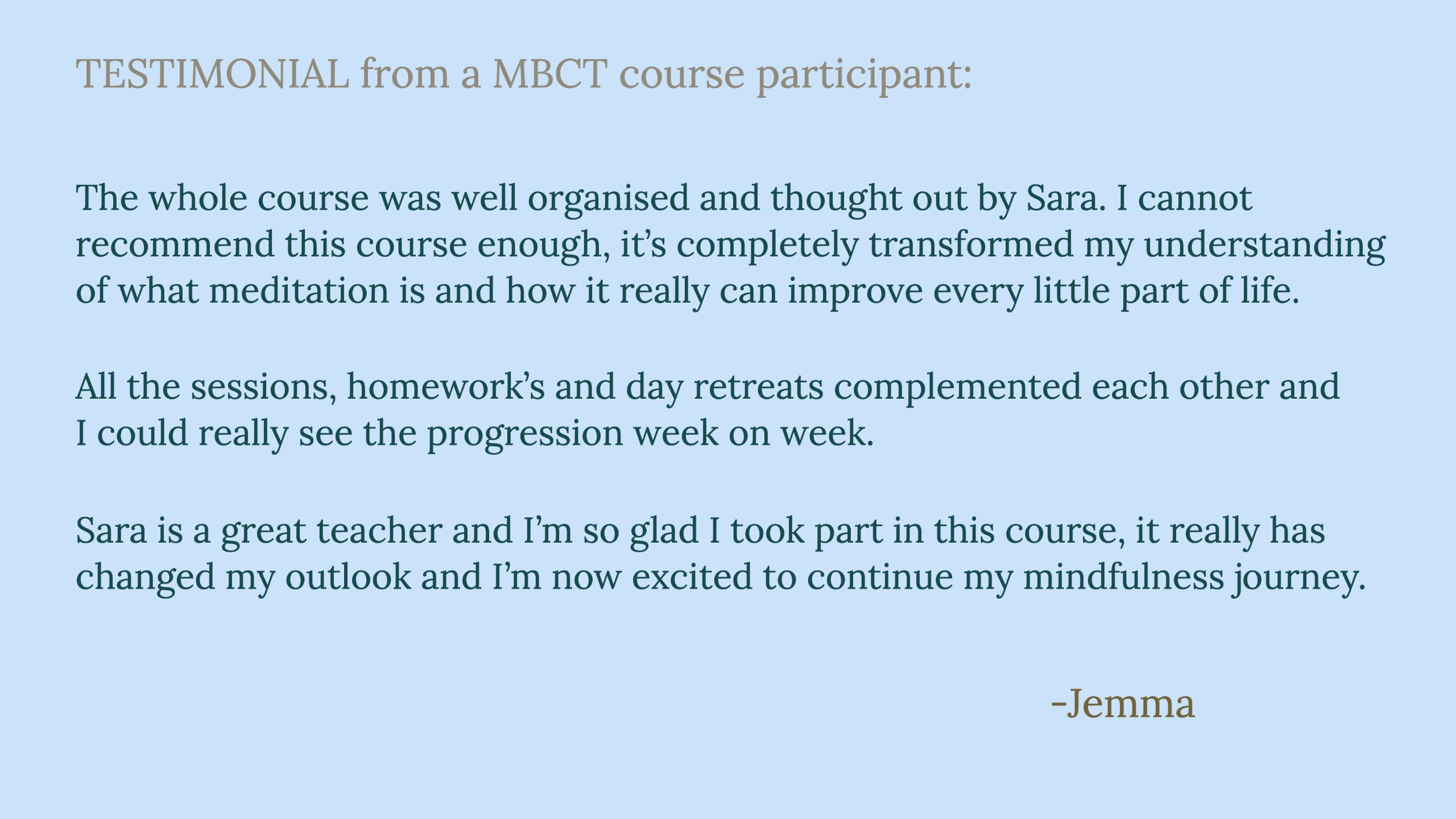MBCT
or Mindfulness Based Cognitive Therapy is an approach to psychotherapy that uses cognitive behavioural techniques (CBT) in collaboration with Mindfulness meditations.
Upcoming 8-week MBCT for Life courses:
Saturdays 9.30am starting January 7th 2023
Mondays 6.30pm starting March 27th 2023
Saturdays 9.30am starting October 7th 2023
Mindfulness for Life course
The mindfulness for life program offers mindfulness practices and cognitive-behavioural techniques in ways that are intended to be accessible to all. It guides participants in how to apply this learning in everyday life both to manage what is painful and difficult but also to cultivate qualities such as compassion and equanimity. It offers a different way of living that supports people to work with challenges, including recurring patterns of thought and behaviour that create suffering, but also to savour life and to flourish. Mindfulness for Life is an in-depth programme intended to cultivate lasting and sustainable change.
What will you learn?
Mindfulness for Life is a skills-based course rather than group therapy. It cultivates the following understandings:
Mindfulness starts when we recognise the tendency to be on automatic pilot, which can rob us of our potential for living life more fully. We begin to practise stepping out of automatic pilot by bringing mindfulness to aspects of everyday present-moment experience that we might normally overlook.
With greater awareness, we begin to notice how often we are lost in our thoughts and feelings. Mindfulness of the body and breathing helps us learn to recognise our thoughts, emotions, sensations, and impulses, gather the scattered mind, and return with appreciation to the here and now.
We learn that when our attention is caught up in the past or the future, we can get trapped in unhelpful patterns of thinking, feeling, and acting. Mindfulness helps us recognise these automatic reactions, understand them as normal human experiences, and bring kindness and compassion to them.
As we cultivate attitudes of interest and friendliness toward all of our experiences, whether pleasant or unpleasant, we learn skills for keeping our balance through life’s ups and downs, responding skilfully when difficulties arise, engaging with what is most important to us, and opening up to moments of joy, contentment, and gratitude. We learn to flourish.
What happens during sessions?
Sessions follow a consistent pattern. After greetings and getting settled, we begin with a guided meditation practice, followed by reflection on the experiences of the practice. Then we discuss the experiences of the home practices during the week. Each session has a theme that is woven into the discussions. We often do another short practice or a cognitive exercise and reflect on what can be learned from that. Near the end of each session, we explain the home practices for the following week.
What does home practice involve?
The teacher will provide recordings for the main practices and ask you to practise up to an hour each day. You may need to reorganise aspects of your life to fit this in. It might be helpful to talk with family or friends about what is involved. If you find this difficult, experiment with practising at different times of the day, and remember to keep an open mind as best you can. You may notice that your experience changes from day to day or week to week. The teachers are available to discuss any difficulties you are having with home practice.
What are the challenges?
At first, practising meditation may feel strange or unfamiliar. As best you can, keep an open mind.
It is not obvious at the outset which practices will be most helpful and you may not see benefits immediately. Practise gentle persistence, and remember that people respond differently.
The amount of practice can feel daunting. However, consistent practice may increase the likelihood of benefitting from the course.
Some people feel apprehensive about being in a group. However, learning from others and seeing that you are not alone can be very beneficial.
You may face emotional issues that you would prefer to avoid. Difficulties that arise can be informative and the course will teach you skilful ways of responding to them.
You may find yourself wanting to give up at times. This is common. Please speak to a teacher about any issues that are making things difficult for you.
What are the benefits?
Research shows that mindfulness courses like this one have many benefits:
Reduced feelings of stress, anxiety, and depression
Improved ability to cope with pain and illness
Less worrying and obsessing over things
Greater appreciation of what is pleasant and enjoyable in life
Feeling clearer about what is truly meaningful, and living life with a stronger sense of purpose
Improved overall wellbeing, even in difficult times
I can’t guarantee all of these benefits for everyone, but my own experience and the published research tell us that changes like these are very common and make the challenges of participating worthwhile.
The MBCT-L course is originally developed by the Oxford Mindfulness Center.










